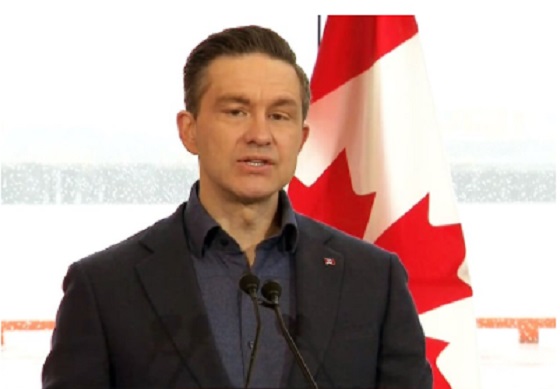Uncategorized
Razor burn: Gillette ad stirs online uproar
NEW YORK — A Gillette ad for men invoking the #MeToo movement is sparking intense online backlash, with accusations that it talks down to men and groups calling for a boycott. But Gillette says it doesn’t mind sparking a discussion. Since it debuted Monday, the Internet-only ad has garnered nearly 19 million views on YouTube, Facebook and Twitter — a level of buzz that any brand would covet.
The two-minute ad from Procter & Gamble’s razor brand shows men and boys engaging in bullying and sexual harassment and encourages men to “say the right thing” and “act the right way.” Taking on bullying, sexual harassment and toxic masculinity is a big task for a razor brand. Many critics took to social media saying it was insulting to men and laden with stereotypes.
The uproar comes as Gillette battles upstarts like Harry’s, Dollar Shave Club and others for millennial dollars. Gillette controlled about 70
Allen Adamson, co-founder of branding firm Metaforce, called the ad a “hail Mary” pass from the 117-year-old company. But he added that online buzz, whether positive or negative, rarely makes a long-term difference for a marketer since memory fades quickly.
“Getting noticed and getting buzz is no easy task, and they’ve managed to break through,” Adamson said. “Most advertisers advertise, and no one notices because there is so much noise in the marketplace, so just getting noticed Is a big win, especially for low-interest category like a razor.”
On the flip side, it probably won’t sell many razors either, he said.
Some cheers were mixed in with the social media boos. In a tweet, actress Jessica Chastain thanked Gillette “for this reminder of the beauty of men. I’m so moved by your call to action.”
The ad echoes other attempts by major advertisers to take on social issues. Pepsi pulled an ad in 2017 showing Kendall Jenner giving a cop a Pepsi during a protest and apologized after an outcry that it trivialized “Black Lives Matter” and other protest movements. Nike polarized the nation with an ad featuring ex-NFL player Colin Kaepernick who started a wave of protests among NFL players of police brutality, racial inequality and other social issues.
Sales weren’t affected in either of those cases. When controversy does affect sales, it is usually over something more substantive than an ad. Lululemon saw sales tumble in 2013 after a string of PR disasters including manufacturing problems that caused their pricey yoga pants to become see through and fat-shaming comments from their founder. But even that was short lived.
Ronn Torossian, CEO of 5WPR, said that much like Nike’s Kaepernick ad, Gillette likely knew the ad would garner online debate.
“Nike knew what they were getting themselves into,” Torossian said. The ad with Kapernick was “making a lot of noise, and it can’t be a surprise to (Gillette) that this is making a lot of noise.”
P&G, one of the world’s largest advertisers, is known for its anthemic spots that appeal to emotions during the Olympics and other events, often aimed at women, such as the tear-jerking “Thank You Mom” Olympics branding campaign and Always “Like a Girl” 2014 Super Bowl ad.
Pankaj Bhalla, North America brand director on Gillette says the controversy was not the intended goal of the ad, which is part of a larger campaign that takes a look at redefining Gillette’s longtime tagline “The Best a Man Can Get,” in different ways. Another online ad features one-handed NFL rookie Shaquem Griffin.
While he doesn’t want to lose sales or a boycott over the ad, “we would not discourage conversation or discussion because of that,” he said.
“Our ultimate aim is to groom the next generation of men, and if any of this helps even in a little way we’ll consider that a success,” he said.
Larry Chiagouris, marketing professor at Pace University, is skeptical.
“Treating people with respect, who can argue with that, but they’re kind of late to the party here, that’s the biggest problem,” he said. “It’s gratuitous and self-serving.”
Mae Anderson, The Associated Press
Uncategorized
Poilievre on 2025 Election Interference – Carney sill hasn’t fired Liberal MP in Chinese election interference scandal

From Conservative Party Communications
“Yes. He must be disqualified. I find it incredible that Mark Carney would allow someone to run for his party that called for a Canadian citizen to be handed over to a foreign government on a bounty, a foreign government that would almost certainly execute that Canadian citizen.
“Think about that for a second. We have a Liberal MP saying that a Canadian citizen should be handed over to a foreign dictatorship to get a bounty so that that citizen could be murdered. And Mark Carney says he should stay on as a candidate. What does that say about whether Mark Carney would protect Canadians?
“Mark Carney is deeply conflicted. Just in November, he went to Beijing and secured a quarter-billion-dollar loan for his company from a state-owned Chinese bank. He’s deeply compromised, and he will never stand up for Canada against any foreign regime. It is another reason why Mr. Carney must show us all his assets, all the money he owes, all the money that his companies owe to foreign hostile regimes. And this story might not be entirely the story of the bounty, and a Liberal MP calling for a Canadian to be handed over for execution to a foreign government might not be something that the everyday Canadian can relate to because it’s so outrageous. But I ask you this, if Mark Carney would allow his Liberal MP to make a comment like this, when would he ever protect Canada or Canadians against foreign hostility?
“He has never put Canada first, and that’s why we cannot have a fourth Liberal term. After the Lost Liberal Decade, our country is a playground for foreign interference. Our economy is weaker than ever before. Our people more divided. We need a change to put Canada first with a new government that will stand up for the security and economy of our citizens and take back control of our destiny. Let’s bring it home.”
Uncategorized
Canada Needs A Real Plan To Compete Globally

From the Frontier Centre for Public Policy
Ottawa’s ideological policies have left Canada vulnerable. Strategic action is needed now
As Canada navigates an increasingly complex geopolitical landscape, the next federal government must move beyond reflexive anti—Americanism regardless of its political leanings. Instead, Canada should prioritize national interests while avoiding unnecessary conflict and subservience.
The notion that Canada can stand alone is as misguided as the idea that it is only an economic appendage of the United States. Both perspectives have influenced policy in Ottawa at different times, leading to mistakes.
Rather than engaging in futile name-calling or trade disputes, Canada must take strategic steps to reinforce its autonomy. This approach requires a pragmatic view rooted in Realpolitik—recognizing global realities, mitigating risks, governing for the whole country, and seizing opportunities while abandoning failed ideologies.
However, if Washington continues to pursue protectionist measures, Canada must find effective ways to counteract the weakened position Ottawa has placed the country in over the past decade.
One key strategy is diversifying trade relationships, notably by expanding economic ties with emerging markets such as India and Southeast Asia. This will require repairing Canada’s strained relationship with India and regaining political respect in China.
Unlike past Liberal trade missions, which often prioritized ideological talking points over substance, Canada must negotiate deals that protect domestic industries rather than turning summits into platforms for moral posturing.
A more effective approach would be strengthening partnerships with countries that value Canadian resources instead of vilifying them under misguided environmental policies. Expand LNG exports to Europe and Asia and leverage Canada’s critical minerals sector to establish reciprocal supply chains with non-Western economies, reducing economic reliance on the U.S.
Decades of complacency have left Canada vulnerable to American influence over its resource sector. Foreign-funded environmental groups have weakened domestic energy production, handing U.S. industries a strategic advantage. Ottawa must counter this by ensuring Canadian energy is developed at home rather than allowing suppressed domestic production to benefit foreign competitors.
Likewise, a robust industrial policy—prioritizing mining, manufacturing, and agricultural resilience—could reduce dependence on U.S. and Chinese imports. This does not mean adopting European-style subsidies but rather eliminating excessive regulations that make Canadian businesses uncompetitive, including costly domestic carbon tariffs.
Another key vulnerability is Canada’s growing military dependence on the U.S. through NORAD and NATO. While alliances are essential, decades of underfunding and neglect have turned the Canadian Armed Forces into little more than a symbolic force. Canada must learn self-reliance and commit to serious investment in defence.
Increasing defence spending—not to meet NATO targets but to build deterrence—is essential. Ottawa must reform its outdated procurement processes and develop a domestic defence manufacturing base, reducing reliance on foreign arms deals.
Canada’s vast Arctic is also at risk. Without continued investment in northern sovereignty, Ottawa may find itself locked out of its own backyard by more assertive global powers.
For too long, Canada has relied on an economic model that prioritizes federal redistribution over wealth creation and productivity. A competitive tax regime—one that attracts investment instead of punishing success—is essential.
A capital gains tax hike might satisfy activists in Toronto, but it does little to attract investments and encourage economic growth. Likewise, Ottawa must abandon ideological green policies that threaten agri-food production, whether by overregulating farmers or ranchers. At the same time, it must address inefficiencies in supply management once and for all. Canada must be able to feed a growing world without unnecessary bureaucratic obstacles.
Ottawa must also create an environment where businesses can innovate and grow without excessive regulatory burdens. This includes eliminating interprovincial trade barriers that stifle commerce.
Similarly, Canada’s tech sector, long hindered by predatory regulations, should be freed from excessive government interference. Instead of suffocating innovation with compliance mandates, Ottawa should focus on deregulation while implementing stronger security measures for foreign tech firms operating in Canada.
Perhaps Ottawa’s greatest mistake is its knee-jerk reactions to American policies, made without a coherent long-term strategy. Performative trade disputes with Washington and symbolic grandstanding in multilateral organizations do little to advance Canada’s interests.
Instead of reacting emotionally, Canada must take proactive steps to secure its economic, resource, and defence future. That is the role of a responsible government.
History’s best strategists understood that one should never fight an opponent’s war but instead dictate the terms of engagement. Canada’s future does not depend on reacting to Washington’s policies—these are calculated strategies, not whims. Instead, Canada’s success will be determined by its ability to act in the interests of citizens in all regions of the country, and seeing the world as it is rather than how ideological narratives wish it to be.
Marco Navarro-Génie is the vice president of research at the Frontier Centre for Public Policy. With Barry Cooper, he is co-author of Canada’s COVID: The Story of a Pandemic Moral Panic (2023).
-

 Alberta2 days ago
Alberta2 days agoProvince introducing “Patient-Focused Funding Model” to fund acute care in Alberta
-

 Alberta2 days ago
Alberta2 days agoMedical regulator stops short of revoking license of Alberta doctor skeptic of COVID vaccine
-

 International2 days ago
International2 days agoUN committee urges Canada to repeal euthanasia for non-terminally ill patients
-

 MacDonald Laurier Institute2 days ago
MacDonald Laurier Institute2 days agoRushing to death in Canada’s MAiD regime
-

 Business2 days ago
Business2 days agoTrump eyes end of capital gains tax in 2025
-

 Bruce Dowbiggin2 days ago
Bruce Dowbiggin2 days agoBettman Gives Rogers Keys To The Empire. Nothing Will Change
-

 2025 Federal Election2 days ago
2025 Federal Election2 days agoPoilievre Will Bring in ‘One and Done’ Resource Approvals, and Ten Specific Projects Including LNG Canada Phase II
-

 2025 Federal Election1 day ago
2025 Federal Election1 day agoHarper Endorses Poilievre at Historic Edmonton Rally: “This Crisis Was Made in Canada”









